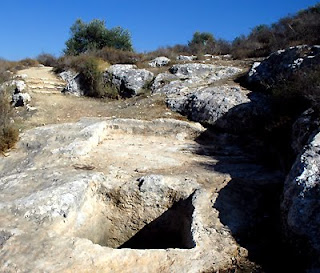The Ark of Noah, and the Ark of the Covenant, and the mind… are all the same. The similarities between the three are striking.
First, let’s notice the choice involved. Noah had a right to refuse to build the ark. It would have cost him his life.
Moses had a right to refuse to build the Ark of the Testimony, but this, too, would have cost him his life.
The two physical arks hold the means to life. They are very nearly a means to an end – a means of arriving at a different level. Noah’s ark brought all that was required to start a new life. Because of his ark, he and his family lived out their lives in a different environment. With the Ark of Moses, the people also had a means to live in a different environment! What did this ark hold? Their instructions for living (Torah)! Their sustenance (manna)! Their promise (Aaron’s budding staff)!
The two physical arks were HOLY. How so? By definition, holy means: Set apart to the service or worship of God. These two arks were of one purpose – to preserve the people. The Ark of the Covenant was the very seat of God! But without God in our midst, we will not be preserved. Once God closed the door to Noah’s Ark, the rains came. When the rains came, you can bet that many, many pounded on the sides of the wooden ark. It was Uzza who put his hand out to steady the Ark of the Covenant, which killed him. The arks were holy.
Noah’s ark was pitched with pitch – inside, and out (Gen 6:14). The Ark of the Covenant was coated with gold – inside, and out. In the midst of both was wood (flesh). It might be said that it is not about the flesh… it’s about the ‘covering’. It’s not just about the appearance from the outside… but what about the appearance on the inside?
From the Ark of Noah went forth a dove. Yes, peace was ‘released’ from this ark. Israel, too, had peace because the Ark of the Covenant went before them. God’s Presence with His people will always release peace to His people, because He is Peace.
Now… our mind. We also must choose to renew our minds daily to conform to the likeness of Jesus:
(2) Do not be conformed to this world, but be transformed by the renewal of your mind, that by testing you may discern what is the will of God, what is good and acceptable and perfect.
If our minds are conformed to the mind of Jesus, then we carry the means of life. This is not just a key to get us into heaven. This is something we can give away! Noah was said to be righteous. His family was ‘never’ described this way. Because of the righteousness of Noah, his family had life. He gave it away!
Our mind is holy.
(20) Now in a great house there are not only vessels of gold and silver but also of wood and clay, some for honorable use, some for dishonorable.
(21) Therefore, if anyone cleanses himself from what is dishonorable, he will be a vessel for honorable use, set apart as holy, useful to the master of the house, ready for every good work.
Being pitched on the inside and the out, once we have made our mind to think the thoughts of Christ, we are designed to rise above the troubles that come our way. Do we avoid them altogether? No – we feel the rain, and the waves, but we do not perish because we are pitched – inside and out. In Genesis 7:18, it says the ark floated “upon the face of the waters”. The Hebrew word for float is ‘al’, which is the same word that is used in Genesis 1:2 when it said God’s Spirit ‘floated’ over the face of the waters. If we dwell in the Spirit of God, we dwell above the chaos, and we wait upon His WORD to come and create peace where before there was none. Can we sleep in the boat with Jesus?





